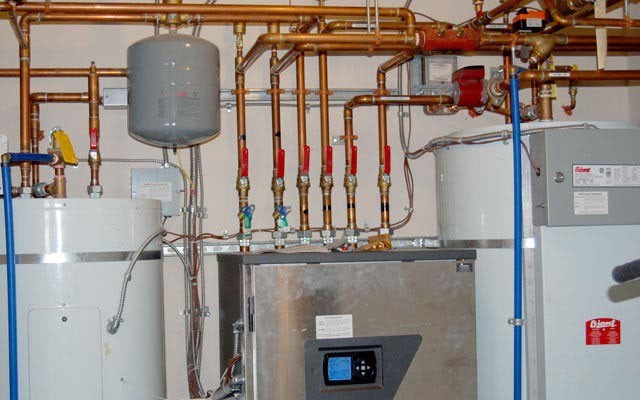Some relief could soon be on the way for Cheakamus Crossing residents who've dealt with ongoing issues around the neighbourhood's costly heating system.
In a Sept. 23 letter to residents, Acting Mayor Jen Ford revealed the municipality could cover at least some of the costs residents have incurred to repair the District Energy System (DES) units in their homes.
The DES is a closed ambient heating method that captures waste heat from Whistler's sewage treatment plant to pump into homes. It was touted by officials in the lead-up to the 2010 Winter Olympics as an energy-efficient, cost-effective system, but has cost some residents thousands of dollars in repairs since it was first installed. A poll last year of 85 Cheakamus residents found that 80 per cent were not satisfied with the system.
"We appreciate the urgency of this matter given the approaching winter season and work on this matter is a priority for WDC (Whistler Development Corporation) and Council," Ford wrote.
Cheakamus developer WDC will lead an assessment of nine individual units this month with the goal to "identify specific deficiencies and look for ways to facilitate improved operations" of the DES. Cheakamus Crossing community representative Tony Routley said the study is also a way for the RMOW to gain a sense of what the total repair costs could be for the entire neighbourhood. It's unclear at this point just how much the municipality would cover if the move is approved, or where the funds would come from. (RMOW communications was unable to answer Pique's questions, with several staff members away this week.)
Routley believes the municipality should reimburse residents for any repair or maintenance costs they have incurred as a result of technical deficiencies at the time of installation.
"I think that (the RMOW) should at the very least bring these properties up to a level that they should have been in when we moved in," he said.
This latest move follows a $15,000 mechanical engineering study of 19 units that was commissioned by the WDC to determine if there were any major flaws with the DES. Presenting the report to council in June, WDC head Eric Martin said the study found "no smoking gun" explaining the litany of technical issues residents have dealt with, although report author Ken Newbert found no shortage of problems. Among them were concerns over the water samples taken in the study, with 87 per cent of the heating systems assessed showing pH samples out of spec, 66 per cent with total dissolved solids out of spec and 47 per cent of the conductivity samples out of spec. The report also concluded there was no documentation to show that a system flush — necessary to eliminate corrosive water — had ever taken place at original startup, despite Martin's assurances.
After continued frustration over a system that has been beset with problems from Day 1, Routley is glad the municipality is moving in the right direction.
"This is a big step," he said. "Everybody has come to the realization that we do have some issues and it's maybe more widespread that initially thought and (the RMOW) is willing to take a look at it. That is very encouraging to me."
Council is set to receive the results of the review of the nine units in the next few weeks, with WDC expected to announce the next step following that.




